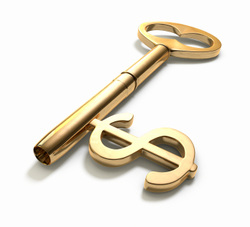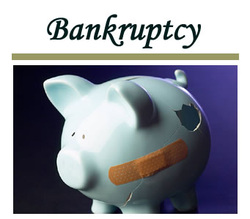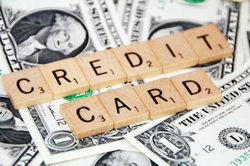
It seemed innocent enough. Your mother mentions that she applied for a new credit card and, in an odd moment of generosity, added you to the account as an authorized signer. You joyfully tuck the card away for a rainy day. But you never need to use it. You are a very responsible consumer, you tend to be lucky in both love and business, and life is good. You never use the card. Don't forget that fact.
Fast forward to the future. Your mother is entering a nursing home and being initiated into the world of end-of-life care. Medicare and Medicaid are no longer foreign words and you realize that you mother's savings cannot be used to pay off her final round of bills. You notice, a credit card statement tucked into her stack of bills. She owes a bit over $1,000 and you notice that she used the card for medication and medical bills. You recognize the credit card company name and realize this is the card on which you were made the authorized signer. You never used the card, so you shrug your shoulders, shake your head, and hope everything will be alright.
And then, one sunny morning, you get that call. It is a not-so-friendly representative from the friendly credit card company and they would like their money. You know, the money that your mother charged on that credit card that holds you as an authorized buyer? You sheepishly agree to a payment plan to pay down her debt. Mom's attempt to provide you with a safety net all those years ago has morphed into a financial burden for you. How is this fair? Is it even legal?
The short answer is no. It was not legal (and most likely not even ethical) of the credit card company to trick you into assuming this debt. If you are the authorized signer, you have no obligation to assume this debt. (Had you co-signed for the card, however, you are indeed obligated to pay the debt.) However, the credit card company is within their rights to ask any authorized signer to pay up. So they ask. And many people will take on the debt of a parent, ex-spouse, or even a child because they do not realize their rights.
So remember, if you are an authorized signer on a credit card, you are not obligated to assume outstanding debts accrued on the card. You can demand credit card companies and their collections associates to refrain from contacting you. You can even contact the credit bureaus and demand they remove all mention of this card and any associated delinquencies/collection efforts from your credit report. It is not your debt unless you choose to assume it. You're welcome!
Fast forward to the future. Your mother is entering a nursing home and being initiated into the world of end-of-life care. Medicare and Medicaid are no longer foreign words and you realize that you mother's savings cannot be used to pay off her final round of bills. You notice, a credit card statement tucked into her stack of bills. She owes a bit over $1,000 and you notice that she used the card for medication and medical bills. You recognize the credit card company name and realize this is the card on which you were made the authorized signer. You never used the card, so you shrug your shoulders, shake your head, and hope everything will be alright.
And then, one sunny morning, you get that call. It is a not-so-friendly representative from the friendly credit card company and they would like their money. You know, the money that your mother charged on that credit card that holds you as an authorized buyer? You sheepishly agree to a payment plan to pay down her debt. Mom's attempt to provide you with a safety net all those years ago has morphed into a financial burden for you. How is this fair? Is it even legal?
The short answer is no. It was not legal (and most likely not even ethical) of the credit card company to trick you into assuming this debt. If you are the authorized signer, you have no obligation to assume this debt. (Had you co-signed for the card, however, you are indeed obligated to pay the debt.) However, the credit card company is within their rights to ask any authorized signer to pay up. So they ask. And many people will take on the debt of a parent, ex-spouse, or even a child because they do not realize their rights.
So remember, if you are an authorized signer on a credit card, you are not obligated to assume outstanding debts accrued on the card. You can demand credit card companies and their collections associates to refrain from contacting you. You can even contact the credit bureaus and demand they remove all mention of this card and any associated delinquencies/collection efforts from your credit report. It is not your debt unless you choose to assume it. You're welcome!





 RSS Feed
RSS Feed